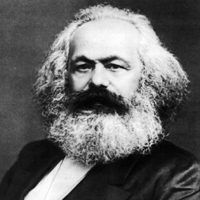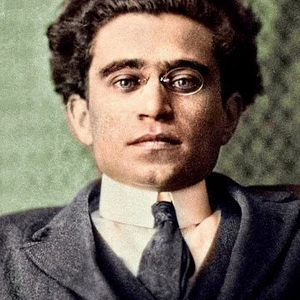Karl Marx MBTI Personality Type
Personality
What personality type is Karl Marx? Karl Marx is an INTJ personality type in MBTI, 5w6 - SO8 - 854 in Enneagram, SCUEI in Big 5, SLE in Socionics.
There is so much blatant and intentional misunderstanding of this man and his thought by people who want to preserve the status quo that it honestly amazes me that the community just happened to be mostly right about his type. A lot of the reasoning behind INTJ that I've seen on here has been total bunk from people who obviously haven't read a sentence of Marx in their lives and only understand him through the lens of liberal and reactionary propaganda. Marx essentially set out to create his own version of Hegelian dialectics that was based on ontological materialism as opposed to Hegelian idealism. For the vast majority of you who definitely don't know what I'm talking about, Hegelian idealist dialectics tries to understand the history and the world through contradiction of ideas and values in a development of Plato's thought. Marx is often said to have turned Hegelian dialectics on its head. He took a materialist approach by reframing Hegelian dialectics into a method by which we develop an understanding of history and the world through the contradictions that exist in the material world. To put this into simpler terms, an idealist dialectical method like Hegel's would try and understand something like the American Revolution for example as a contradiction of the ideas of liberty and monarchy. A Marxist dialectical analysis of the American revolution would understand the American Revolution as the contradiction and struggle between the ruling class of the British monarchy and the new class of merchants that had developed in the colonies as a result of seafaring trade who had their own interests that were opposed to the interests of the monarchy. The king wanted to be able to collect his own taxes and have control over the economy, and the new merchant class wanted to rid themselves of these restrictions so that they could get rich. Marx then used this dialectical materialist method in order to set out and try and de-mystify the world and actually get rid of all of these mystical and abstract idealist notions and instead try to explain and understand the world in a concrete and scientific way. This line of thinking led him to try and understand abstract things like the development of society, history, economics, and capitalism through a dialectical materialist lens. It's a beautifully scientific method that, much to the chagrin of those who wish to protect the status quo, has resisted all attempts to dismantle it as a scientific methodology. It is this historical materialism that Marx would use to develop the concept of the class struggle as the driving force of human historical development; master vs. slave in slave society, nobility vs. serf in feudalism, bourgeoisie vs proletariat in capitalism. He also went to great lengths to de-mystify the concepts of commodities and the value of commodities in order to identify exactly where profits come from, and determined that the socially necessary labor time to produce a commodity is where value comes from, and that capitalists generate their profits by not paying the worker the full value of their labor. If they didn't do this, the capitalist would break even. This exploitation of the labor of the working class is what Marx identified as the principle class contradiction and conflict within capitalism. Of course, Marx was not done. As the famous quote goes, "the philosophers have hitherto only interpreted the world in various ways. The point is to change it." It was then that Marx set out to try and use historical materialism to predict the future development of human society beyond capitalism in order to resolve capitalism's principle contradiction, and with the help of Engels pitching in his own takes on historical materialist throught, they were together able to develop an early formulation of communism. Marx died before this work could be finished, and so the torch was passed to Engels and eventually to Lenin, Mao, and other Marxist theoreticians in order to further develop his thought. The process of the development of the Marxist science continues to this day. Anyway, with the explanation of Marxism out of the way, we can conclude that Marx was definitely an INTJ. He set out to take Hegel's abstract understanding of the world (Ni) and filter it through the lens of the material world as opposed to contradictions in ideas and values (Te). And there we go. Finally, an analysis of Marx's thought on this site that isn't totally vapid and isn't based on the surface-level opinion of "gommunism bad." I await the torrent of downvotes from the liberals and reactionaries.
Biography
Karl Marx (5 May 1818 – 14 March 1883) was a German philosopher, economist, historian, political theorist, sociologist, journalist and revolutionary socialist. Born in Trier to a middle-class family, Marx studied law and Hegelian philosophy. Due to his political publications, Marx became stateless and lived in exile in London, where he continued to develop his thought in collaboration with German thinker Friedrich Engels and publish his writings.
Related Personalities
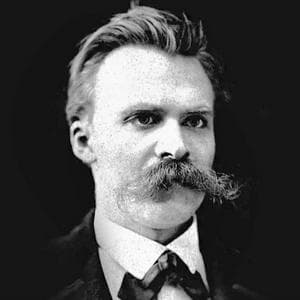
Friedrich Nietzsche
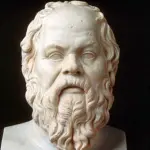
Socrates

Arthur Schopenhauer

Albert Camus

Immanuel Kant
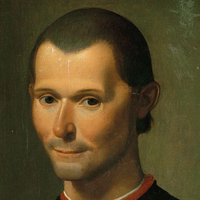
Niccolò Machiavelli
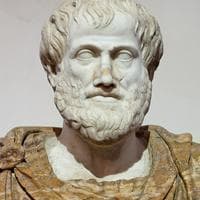
Aristotle
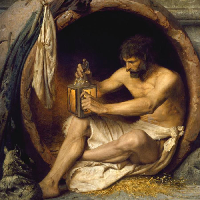
Diogenes
